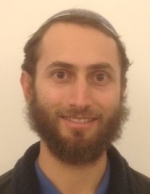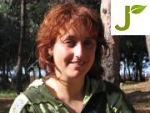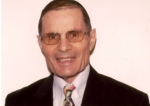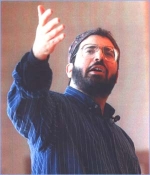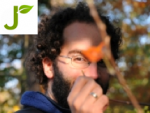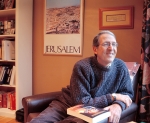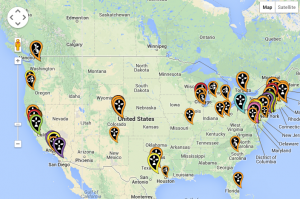Eco-Theology Subscribe
A selection of initiatives, blogs, resources and communities on Jewcology which focus on eco-theology.
From the Blogs
New Interfaith Ecology Video “One Home”
The Interfaith Center for Sustainable Development based out of Jerusalem has recently released a new video entitled "One Home." This unique interfaith eco viral video features world religious leaders speaking out on environmental sustainability. Faith leaders including Chief Rabbi Jonathan Sacks, the Dalai Lama, and others deliver a message of hope and inspiration on the importance of protecting the earth, our common home. Please share this video with your family, your friends, and your community and help promote a sustainable future! bit.ly/onehome1
Covenant Campaign Blog from The Religious Action Center of Reform Judaism
At the Starting Line: 14% by 2014 By Susan Paykin, Religious Action Center of Reform Judaism (the RAC) Two years from now, we will celebrate the beginning of the Shmittah year, or sabbatical year. Shmittah marks the seventh year in the ancient agricultural cycle, when we are commanded to “release” (the literal Hebraic translation of shmittah) the Earth from human stress. Our land is to lay fallow and any fruits or vegetables that grow are ownerless, open to anyone who needs or wants to eat them. In the new millennium, observing Shmittah ...
Torah tour of Brooklyn Botanic Garden, Sunday, July 22, 2012
Torah tour of Brooklyn Botanic Garden Sunday, July 22, 2012 11 AM This is a great way to spend part of a Sunday during the three weeks. We will meet at the Flatbush entrance to the Brooklyn Botanic Garden (corner of Flatbush Avenue and Empire Blvd.) at 11 AM. Admission to the Garden is $10 for adults, $5 for students age 12 and older and seniors age 65 or older, and free for members and children under age 12. There is an additional $5 charge (cash only, please) for the Torah tour. Children will also receive a free craft project to take home. The ...
Think Jewishly, Act Globally: Teva Ivri at RIO+ 20
Dear Friends, A few weeks ago , I traveled with the Israeli delegation to The United Nations Conference on Sustainable Development in Rio de Janeiro, Brazil. The conference, titled “The Future We Want,” was an opportunity to evaluate the global progress on environmental issues since the last summit in 1992 and to commit to future changes. An amazing cross-section of humanity – heads of state, tribal kings, medicine women, and ordinary activists like me – gathered from all corners of the earth to discuss how to reduce p¬overty, ...
My new book, “Who Stole My Religion?” is now freely available as an eBook
Shalom, Because there is much denial and ignorance about the increasing evidence that the world is approaching a climate catastrophe, as well as major food, water, and energy scarcities, I, Richard Schwartz, have decided to make the eBook version of my controversial new book, Who Stole My Religion? Revitalizing Judaism and Applying Jewish Values to Help Heal Our Imperiled Planet, FREELY available! It can be read by visiting www.whostolemyreligion.com, and scrolling down to a link directly below a picture of the book’s cover on the left side of the ...
A Jewish Environmental Proclamation
When God created the first human beings, God led them around the Garden of Eden and said: “Look at my works! See how beautiful they are – how excellent! For your sake I created them all. See to it that you do not spoil and destroy My world; for if you do, there will be no one else to repair it. - Midrash Kohelet Rabbah 1 (on Ecclesiastes 7:13) We are witnessing a time in which the future of the planet is at stake. The climate crisis is escalating, and it is upon each one of us to do what we can to change course. In the Torah it is ...
Take an online, college-accredited course on Judaism and the environment!
Introducing an online, college-accredited course on Judaism and the environment! The course, ‘A Jewish Perspective on Environmental Sustainability,’ relates to contemporary environmental issues from the lens of Jewish teachings. The units covered include the Garden of Eden and a stewardship paradigm; Jewish sources on agriculture and globalized food production today; and the Torah’s injunction not to waste in regards to food and energy waste in modern society. The course is being offered by the New York-based Theological Research ...
Equity or the Flood: Two Visions of Justice
It is now seven weeks to Passover and the Passover foods are already for sale in my local supermarket. My family is already planning when to do our shopping and whom to invite to the seder. Like many Jewish families, we put a lot of time and preparations into this holiday because we want to make it special and different from the rest of the year as was done when we were children. But our preparations are not only about shopping, cooking, invites and the changeover of dishes. Every year, we spend at least a little time considering what we ...
Last Day to Order Free Haggadot
Good Chodesh! Today is Rosh Chodesh Shevat; according to Beit Shammai, THIS is the new year of the trees! In any case, we wish you a good and green new month. Tu b'Shevat is in just two weeks, on Tuesday-Wednesday February 7-8! Today is the final deadline for orders of free haggadot this year. You can order up to 25 Haggadot absolutely free by posting your request on our facebook page. Please post the number of haggadot you are requesting, your location, and the community where the materials will be ...
Tu B’Shevat Seeds
Dear friends, The origins of this post began over a year ago when I came across a quote that looked to me like Rabbi Heschel challenging Martin Buber’s masterpiece, I and Thou. Unbelievable, right? Like two superheroes fighting. I was compelled to explore deeper. Here’s what Rabbi Heschel said: “…I am not ready to accept the ancient concept of prayer as dialogue. Who are we to enter a dialogue with God?” He then declares that he is only an “it” immersed within the all that is God and can not be an ‘I’. ...
What does it mean to be a “Sustainable Jew” (CJN Sept 2010)
This column was originally published in the Canadian Jewish News - September 22, 2010 Have you ever thought of Sukkot as a holiday which celebrates the Sustainable Jew In ancient Israel, Sukkot had a major agricultural focus. The celebration was a thanksgiving for the fruit harvest and the blessings of nature in the year that had passed. Today, Sukkot is a Jewish Festival where we step out of the comfort of our own homes, and enter temporary dwellings where we are exposed to the vagaries of the weather while performing the mitzvah of “Leshev Bsukah&rdqu...
Pre-Tu b’Shvat Brunch Lecture: Lessons from the olive tree for families, Jewish unity, and the Social Security system
On Sunday, Jan. 22, 2012, I will be presenting a brunch lecture at the YM-YWHA of Union County, NJ, from Noon to 1 PM on "Lessons from the olive tree for families, Jewish unity, and the Social Security system." Highlights include: The Chanukah story they DIDN’T tell you as a child Why a nineteenth-century rabbi used botany to make sense of Kabbalat Shabbat The hidden tree and advice to adult children and parents in Psalms 92 and 128 The fee for the program is $3 for YM-YWHA and JOY members and $8 for all others. For more ...
The Voices of the Whales and the Trees: Lessons for TU B’SHEVAT
It was not a typical Shabbat afternoon that August of 2001. We were sitting on the shore of Windfall Island, on the edge of Tebenkof Bay in Southwest Alaska, watching the Humpback whales feed in Chatham Strait. As we watched, they moved across our view from north to south, diving and surfacing as they fed. They moved behind a small island and as they came back into view two whales suddenly threw themselves into the air at the same time. Then others followed as we shouted in delight. It was a fitting climax to a wonderful and inspiring experience. The “we” ...
Seeds
(reposted from Rabbi Nina Beth Cardin's blog: http://blog.bjen.org/ dated January 6, 2012) In Genesis 1, on the sixth day, God creates man and woman after having created all the rest of Planet Earth. In a gracious effort to provide some guidance, some instruction to these bewildered, befuddled neophytes on how this novelty of life could possibly work, God says, "Look around. All this grandeur is there for you." 28 God blessed them and said to them, “Be fruitful and increase; fill the earth and subdue it. Rule over the fish in the sea and ...
Jewish Urban Farming Internship
Urban Adamah, based in Berkeley, CA, is a three-month intensive residential leadership training program for young adults ages 20-29, that integrates urban organic farming, social justice work and progressive Jewish living and learning. Twelve Urban Adamah Fellows are selected each season to operate an organic farm and educational center, intern with community organizations addressing issues at the intersection of poverty, food security and environmental stewardship, and learn an approach to Jewish tradition that opens the heart and builds joyful community. Applicants do ...
Jewish Environmentalism or Jewish Ecology?
As a member of the self described ‘Jewish environmental movement’, I find it necessary from time to time to ask myself what it means to be a Jewish environmentalist. Having covered that in my last blog post, I want to ask a follow up question. As Jewish environmentalists, are we operating ecologically? Do our organizations, institutions, and members observe, interact with, and learn from the multivalent relational systems present in the world? If we examine the biblical narrative of Abraham, it is clear that a careful, considered questioning of relatio...
Cisterns or Trees…?
(reposted from a blog by Rabbi Nina Beth Cardin, http://blog.bjen.org/) There is a wonderful teaching in the Jerusalem Talmud which reads: "Rabbi Yohanan, speaking on behalf of Rabbi Yossi, says: 'Just as they (the other rabbis) believe that civilization depends on cisterns, so I believe that civilization depends on trees.'" The work of blending civilization and nature has always been a challenge. In this "man vs nature" tug of war, we must ask, who wins? What has precedence over what; what should yield to what? Gray infrastru...
The Festival of Lights: The Spiritual Dimension of Energy
Oh, Lord, my God, You are very great; You are clothed in glory and majesty, Wrapped in a robe of light; You spread the heavens like a tent cloth. (Psalm 104:2) Hanukkah which means “(re)dedication” has also been called the “Festival of Lights” at least since the 1st Century CE as the earliest reference to this name is found in the historian Josephus: And from that time [the purification of the Temple by the Maccabees] to the present time we celebrate this festival, and call it Lights. I suppose the reason was, ...
The Everyday Greening of Teshuvah
Dear Friends, I’d like to open a kettle of worms. To reveal the concealed. Though quite honestly, I’m feeling a little guilty about sharing it. I’d like to dig into the anguish and sometimes near crushing feelings that writing about tremendous mountains of electronic waste stir up (see my past blog here). Living in America in the new millennium, I’m aware that even the most “virtuous” of green paths cannot escape deep impacts and repercussions. After all, the problems are so large, and my everyday life is intimately ...
“Simple Actions for Jews to Help Green the Planet”
WHAT IS THE RESPONSIBILITY OF JEWS TO SAVE OUR PLANET? Thousands of years ago our ancestors lived with a keen awareness of their dependence on the natural systems that support life. Through their daily interactions with soil, water, and air, they developed a great respect for the Earth and sensed the presence of the Divine within all of Creation. Although many Jews today have lost this connection, our ancient relationship with nature is nevertheless reflected in Jewish law, in our prayers, in the celebration of our holidays, and in the core values of our tradition...

